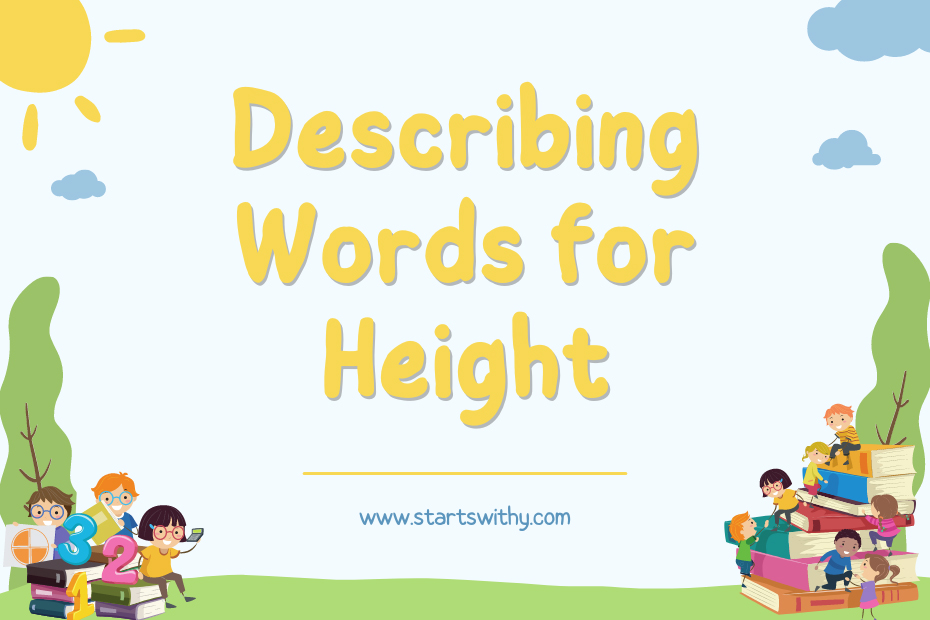When it comes to describing someone’s height, the right adjectives can paint a vivid picture in our minds. Whether someone is towering over others or barely reaching their shoulders, adjectives for height help us visualize their stature. In this article, I’ll be sharing a list of descriptive words that can be used to accurately depict someone’s height, along with examples to illustrate their usage. So, whether you’re a writer looking to add depth to your characters or simply curious about the different ways we can describe height, this article is for you. Let’s dive in and explore the fascinating world of adjectives for height!
From “tall” to “short,” the English language offers a wide range of adjectives to describe height. But there’s more to it than just these basic terms. In this article, I’ll be introducing you to an array of descriptive words that go beyond the obvious, allowing you to paint a more nuanced picture of height. Whether you’re describing a towering basketball player or a petite ballet dancer, these adjectives will help you capture their unique stature. So, let’s get started and discover the diverse vocabulary we can use to describe height!
How to Describe height? – Different Scenarios
When it comes to describing height, there are various scenarios that call for different adjectives. Whether you’re writing a story, describing a character, or teaching kids about words, it’s important to have a diverse vocabulary to accurately convey the various heights. In this section, I’ll provide you with examples and scenarios to help you describe height effectively.
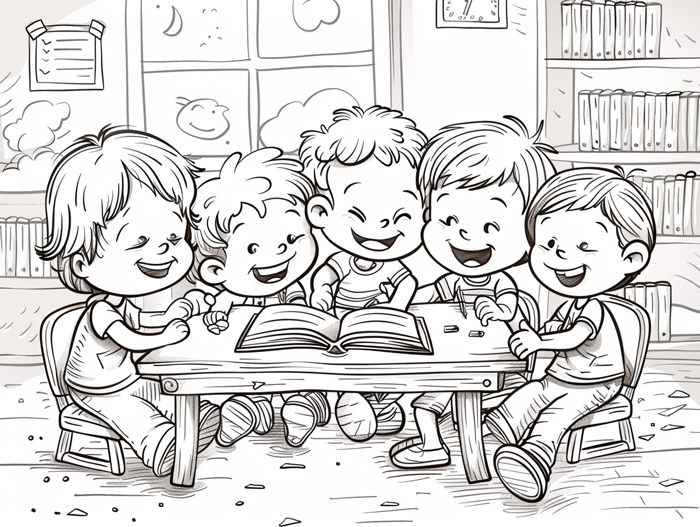
- Comparative Height: When comparing the height of two or more people, it’s important to use adjectives that highlight the differences. Here are some examples:
- Person A is taller than Person B.
- Person C is shorter than Person D.
- Person E is as tall as Person F.
- Extreme Heights: Sometimes, you may need adjectives to describe heights that are exceptionally tall or short. Here are a few examples:
- I saw a giant walking down the street.
- The basketball player was extraordinarily tall.
- The short girl was known as the tiny one in her group.
- Age and Height: Another scenario where height is often described is in relation to age. Here are a few examples:
- The newborn baby was so small, fitting perfectly in its mother’s arms.
- The teenage boy was going through a growth spurt and getting taller every day.
- The elderly woman was now much shorter, hunched over with age.
- Height and Body Build: Describing height in relation to a person’s body build can add depth to your descriptions. Here’s how you can do it:
- The tall and slender model walked down the runway with grace.
- The short and stocky man stood his ground, exuding confidence.
Remember, using adjectives to describe height can make your writing more vivid and engaging. By incorporating these descriptions, you can provide readers with a clear understanding of the characters or subjects you’re describing.
Throughout this section, I’ve provided you with examples and scenarios to help you effectively describe height in different contexts. By employing diverse vocabulary and incorporating these adjectives, you can bring your writing to life and captivate your readers.
So, now that you know how to describe height in various scenarios, let’s move on to the next section where we’ll explore more descriptive words for height.
Describing Words for height in English
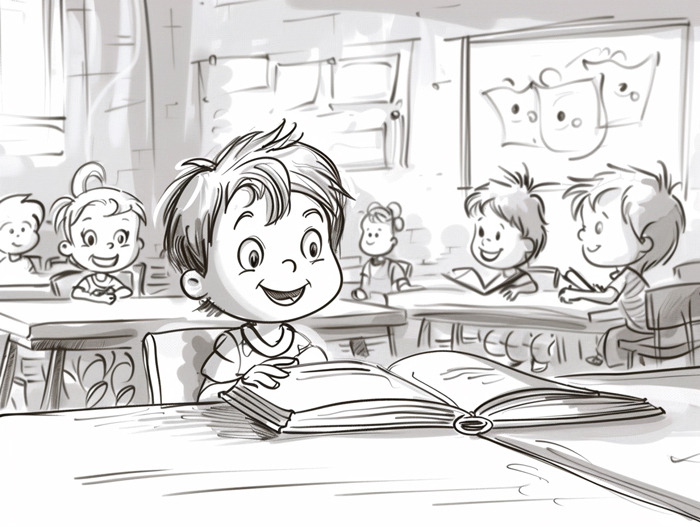
When it comes to describing someone’s height, it’s important to use a variety of adjectives to accurately convey the information. Whether you’re comparing heights, describing extreme heights, or relating height to age or body build, the right choice of words can make your writing more vivid and engaging. Let’s explore some descriptive words for height in English:
- Tall: Used to describe someone of above-average height. For example, “He’s tall for his age.”
- Short: Used to describe someone of below-average height. For example, “She’s short for a basketball player.”
- Average: Used to describe someone of medium height. For example, “He’s of average height compared to his classmates.”
- Lanky: Used to describe a tall person who is thin or has long limbs. For example, “The basketball player was lanky and agile on the court.”
- Petite: Used to describe a small-framed person, typically used for women. For example, “She’s petite and can fit into smaller clothing sizes.”
- Stout: Used to describe someone who is short and heavily built. For example, “The wrestler was stout and had a strong presence.”
- Gigantic: Used to describe someone who is exceptionally tall or large. For example, “The wrestler was gigantic, towering over his opponents.”
- Tiny: Used to describe someone who is very short or small in size. For example, “The little girl was tiny, standing just above the height of the table.”
- Elongated: Used to describe someone who has a taller or longer appearance. For example, “The model had an elongated figure, with long legs and a slender frame.”
- Stumpy: Used to describe someone who is short with a thick and stocky build. For example, “The weightlifter had a stumpy physique, with broad shoulders and powerful arms.”
Remember, using a variety of descriptive words for height can enhance your writing and make it more engaging. Experiment with different adjectives to accurately convey the height of the person you’re describing.
Adjectives for height
When it comes to describing someone’s height, using a variety of adjectives can make your writing more engaging and vivid. Whether you are a kindergarden or preschool teacher looking to teach easy words to kids or simply want to enhance your descriptive skills, here are some adjectives to help you accurately convey different heights.
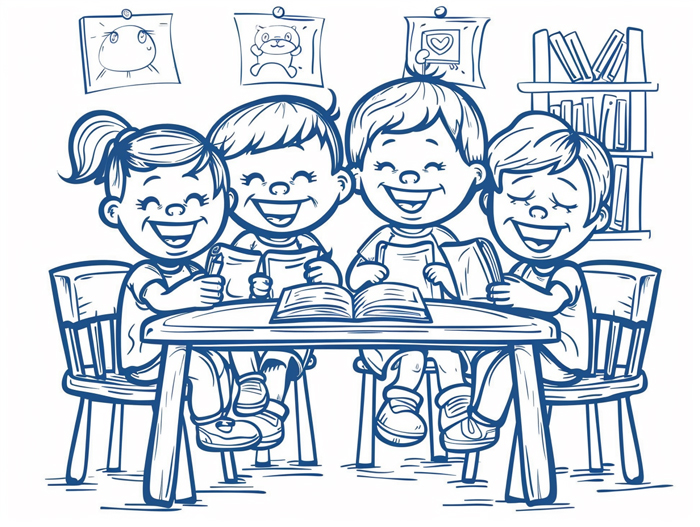
Positive Adjectives for Height
Describing someone’s height in a positive light can add depth and interest to your writing. Here are twelve examples of positive adjectives you can use:
| Adjective | Definition |
|---|---|
| Tall | Having a greater than average height |
| Stately | Impressively tall and dignified |
| Towering | Extremely tall and imposing |
| Majestic | Having a grand and elegant height |
| Regal | Displaying a noble and graceful height |
| Statuesque | Having a tall and gracefully proportioned height |
| Elegant | Delicately tall and refined |
| Graceful | Displaying a tall and fluid body posture |
| Slender | Thin and tall in a beautiful way |
| Lithe | Agile and supple in a tall and lean frame |
| Exquisite | Delicately tall and finely proportioned |
| Striking | Noticeably tall and attention-grabbing |
With these positive adjectives, you can paint a vibrant picture of someone’s height, capturing their grace, beauty, and impressive stature.
Negative Adjectives for Height
On the other hand, there may be occasions when you need to describe someone’s height in a less favorable manner. Here are five examples of negative adjectives for height:
| Adjective | Definition |
|---|---|
| Short | Below average in height |
| Stumpy | Short and thick in a way that lacks elegance |
| Petite | Short and delicately proportioned |
| Compact | Well-built but shorter in stature |
| Diminutive | Unusually small or short |
While it’s important to use descriptive words that accurately depict someone’s height, it’s also important to be mindful of their feelings and avoid any negative connotations.
Synonyms and Antonyms with Example Sentences
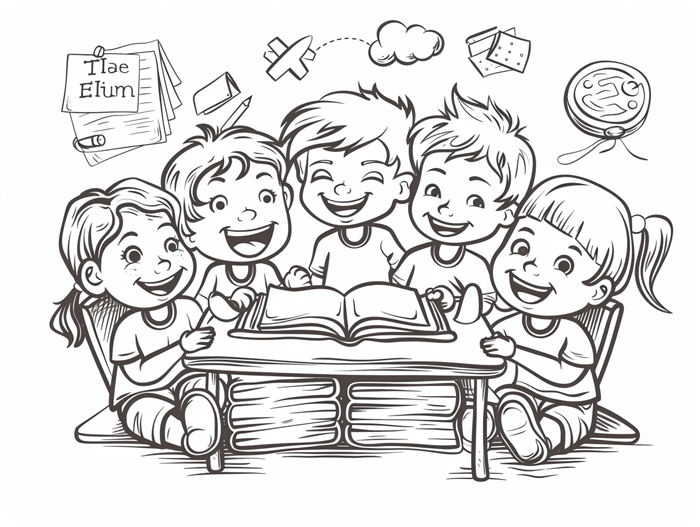
Synonyms for Height
When it comes to describing height, there are many different synonyms that can be used to add variety and depth to your writing. Here are a few synonyms for height along with example sentences:
| Synonyms | Example Sentences |
|---|---|
| Tall | My brother is quite tall, standing at 6 feet. |
| High | The mountain peak reaches a high of 10,000 feet. |
| Elevated | The platform offers an elevated view of the city. |
| Lofty | The basketball player made a lofty slam dunk. |
| Stature | The actress has a stature that commands attention. |
By using synonyms, you can avoid repetition and make your writing more engaging and interesting. Experiment with different synonyms to find the perfect word to describe someone’s height.
Antonyms for Height
Just as there are synonyms to describe height, there are also antonyms that can be used to convey the opposite meaning. Here are a few antonyms for height with example sentences:
| Antonyms | Example Sentences |
|---|---|
| Short | My little sister is quite short for her age. |
| Low | The ceiling in the room is low, making the space feel cozy. |
| Reduced | The basketball player suffered a reduced height after an injury. |
| Diminished | The tower’s diminished height was a result of the renovations. |
| Lowered | I noticed a lowered height on the measuring tape. |
Using antonyms can help paint a clearer picture when describing someone’s height. By considering both synonyms and antonyms, you can create a more well-rounded description in your writing without solely relying on repetitive adjectives.
Remember, using a diverse range of vocabulary enhances your writing and makes it more engaging. It’s essential to be mindful of the words we use to avoid negative connotations and ensure clear communication.
Conclusion
It is evident that using a wide range of adjectives to describe someone’s height is essential for creating engaging and impactful writing. Throughout this article, I have provided examples of various synonyms and antonyms that can be utilized to add depth and variety to descriptions. By incorporating diverse vocabulary, writers can effectively capture the nuances of height, making their content more interesting and relatable to readers.
It is important to note that while using adjectives to describe height, we should be mindful of avoiding negative connotations. By choosing words that are neutral or positive, we can ensure that our writing remains respectful and inclusive.
The use of descriptive adjectives for height is a powerful tool that can elevate our writing. By employing a diverse range of vocabulary and being conscious of our word choices, we can create compelling content that captivates and resonates with our audience. So, let’s embrace the richness of language and explore the multitude of adjectives available to us when describing height.
